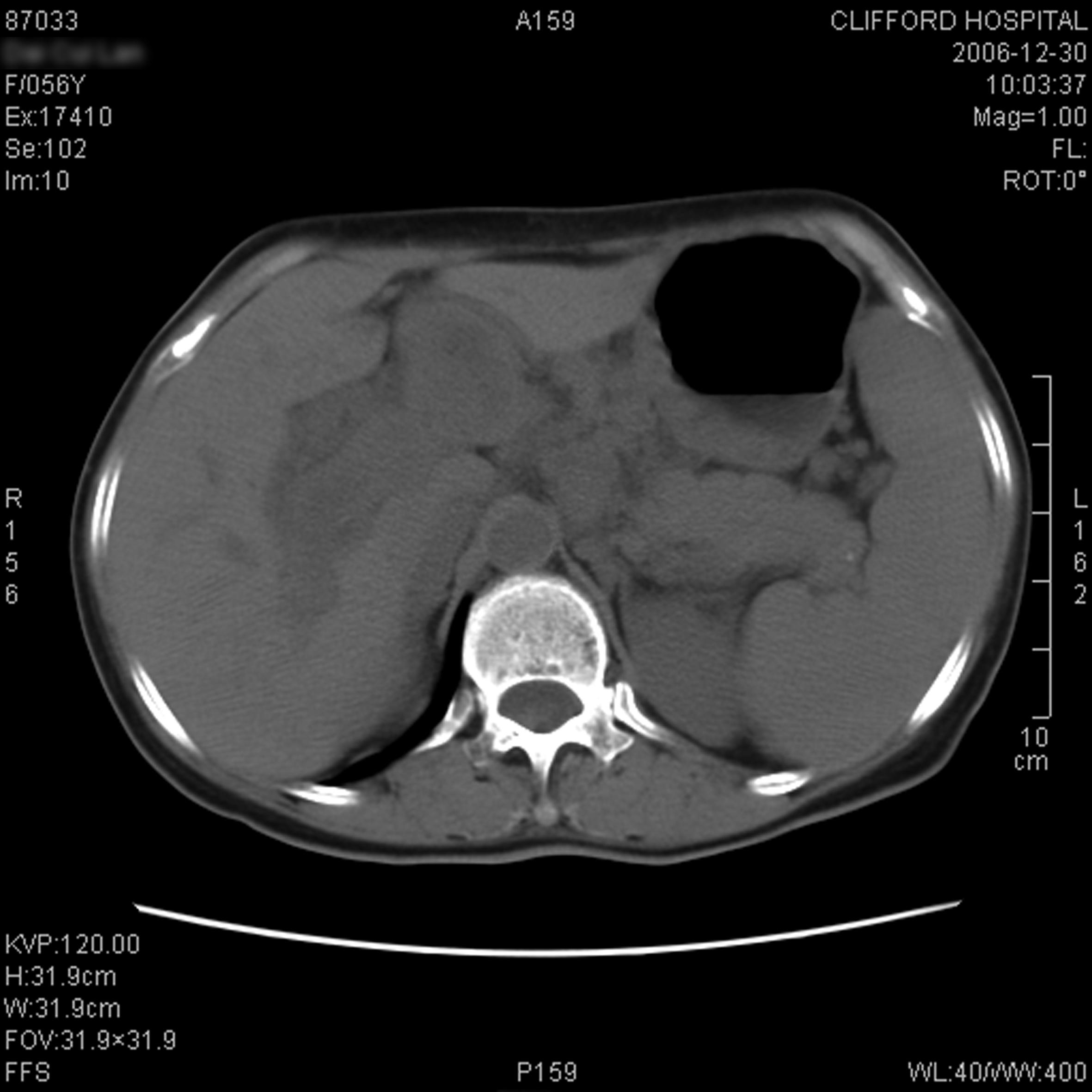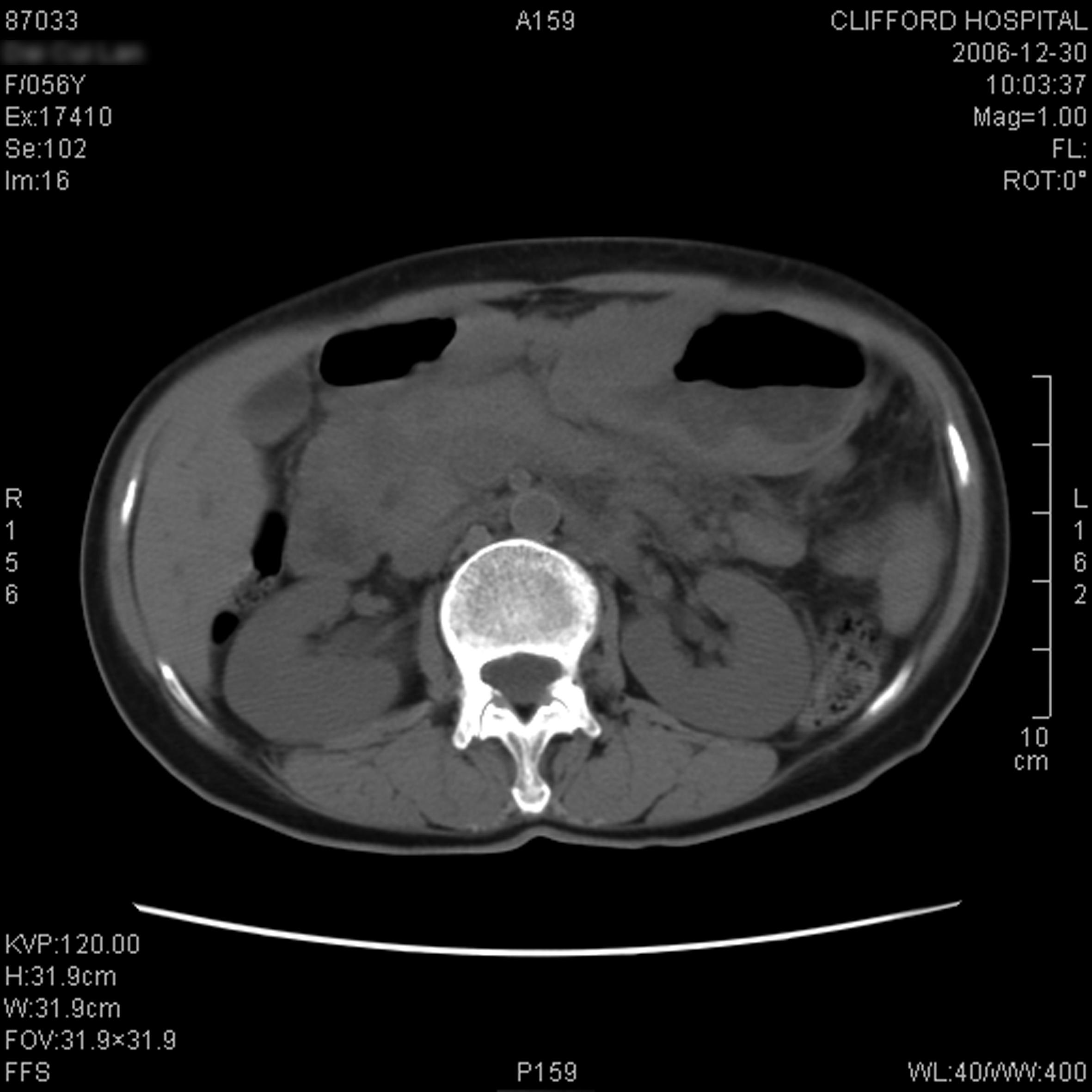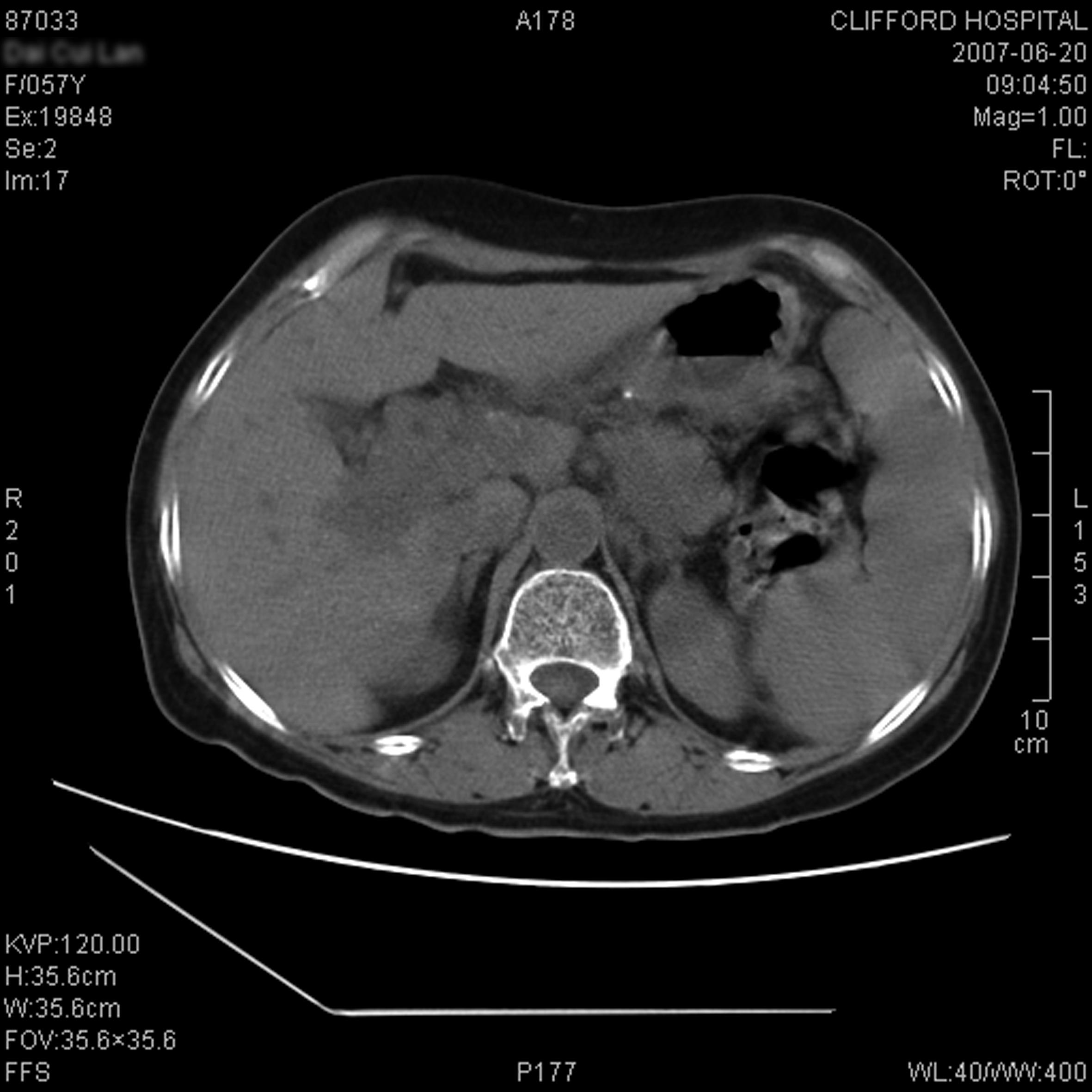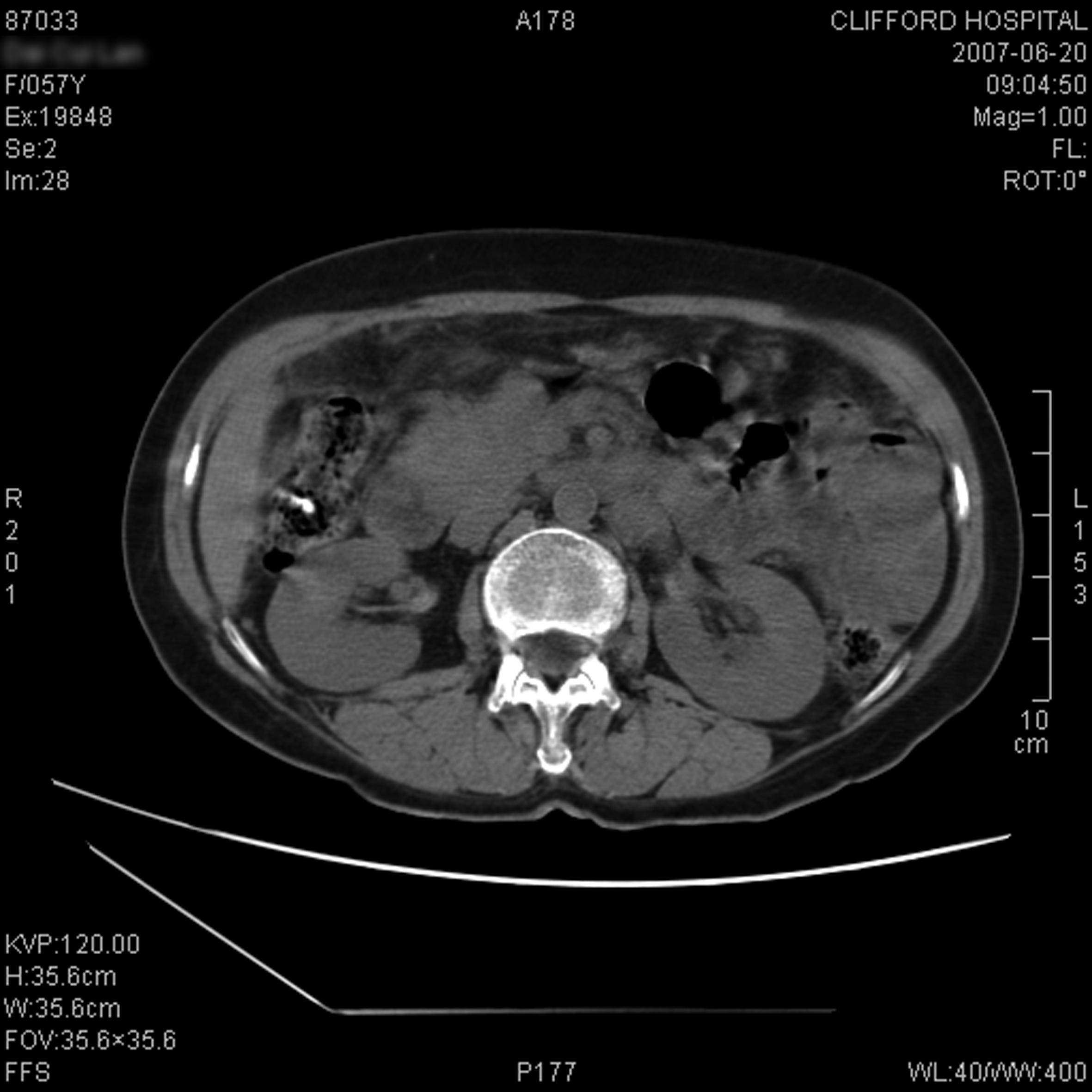Introduction
Gastric cancer is the most common cancer of the digestive tract and is among the forefront of all human malignancies. More than 1 million new cases of gastric cancer are reported annually in the world, of which China accounts for 42% and deaths of about 0.8 million, accounting for 35%. China is one of the countries with the highest incidence of gastric cancer, with morbidity and mortality more than twice the world’s aver-age levels. About 90% of early gastric cancer patients can survive more than 5 years or be cured after appropriate treatment, while the 5-year survival rate of very advanced gastric cancer patients is less than 5% after treatment. Due to various reasons, the early diagnosis rate of gastric cancer in China is less than 10%, and about 50% of advanced gastric cancers exist with peritoneal recurrence and metastasis. The application of hyperthermia and hyperthermal perfusion chemotherapy has increased the efficacy and 5-year survival rate of gastric cancer patients.
Early gastric cancer may have no obvious symptoms. Upper abdominal fullness is often the earliest symptom of advanced gastric cancer, sometimes accompanied by belching, acid regurgitation, and vomiting. If carcinoma foci are located in the cardia, the patient may feel swallowing obstruction; if carcinoma foci are located in the pylorus and obstruction appears, the patient may vomit corrupted food. According to statistics, about 50% of elderly patients have significant loss of appetite, increasing weight loss and fatigue, and 40%–60% of patients would seek medical care due to weight loss. In about 10% hematemesis appears among patients with gastrointestinal hemorrhage, in about 35% melanemia appears, and in about 60%–80% persistent fecal occult blood may be present (small quantities and invisible to the naked eye but can be found by testing).
Treatments
1.Surgery
Surgery is the major and traditional treatment of gastric cancer, including mainly gastric cancer resection and cleaning of lymph nodes that are most likely to be metastasized by gastric cancer. Surgical treatment is preferred for early gastric cancer, and part of patients at phase III can also achieve surgical conditions by preoperative chemotherapy for surgical treatment. Patients who show obstruction can also receive palliative surgical treatment.
2.Radiotherapy
Because the sensitivity of gastric adenocarcinoma is low to radiation, radiotherapy alone is ineffective and, thus, is complementary in the treatment of gastric cancer. Radiotherapy is divided into preoperative radiotherapy, intraoperative radiotherapy, postoperative radiotherapy, palliative radiotherapy (i.e., relieve obstruction or pain without prolonging life), and so on. Studies have shown that radiotherapy in the treatment of gastric cancer has a certain value as a remedial measure. Foreign studies have suggested that postoperative chemoradiotherapy can improve the treatment of gastric cancer and long-term efficacy. Further clinical exploration is needed.
3.Chemotherapy
Preoperative chemotherapy, also known as neoadjuvant chemotherapy, is mainly for gastric cancer patients at preoperative stages II and III and mostly applies combined chemotherapy protocols. Generally, conduct one to three cycles and the route of medication is dominated by intravenous or oral administration. Intraoperative chemotherapy is mainly to prevent surgically induced iatrogenic tumor dissemination and to eliminate residual foci. Intravenous administration can be applied. In recent years, intraperitoneal administration has been encouraged. The purpose of postoperative chemotherapy is to prevent recurrence and metastasis. In principle, early postoperative gastric cancer does not need chemotherapy, whereas medium-advanced patients need chemotherapy; chemotherapy commonly adopts combined therapy, focusing on intravenous and oral administration of chemotherapy drugs. In recent years, early postoperative intraperitoneal chemotherapy has been encouraged, which can be effective in preventing postoperative peritoneal recurrence and prolonging survival time. For advance gastric cancer patients who are inoperable with nonradical surgery or cannot be reexcised due to radical recurrence, combined therapy including chemotherapy treatment can be applied. It should be noted that the treatment of advanced gastric cancer should focus on prolonging survival time and improving quality of life; indications for chemotherapy need to be cautiously assessed.
4.Hyperthermia
Hyperthermia for gastric cancer includes mainly perioperative hyperthermia, postoperative maintenance treatment, and hyperthermia for medium-advanced gastric cancer. Currently, RF deep hyperthermia combined with intraperitoneal hyperthermic perfusion chemotherapy is commonly applied clinically.
5.Chelation Detoxification Therapy
Giving chelation detoxification after surgery together with chemotherapy can not only supplement liquids but also stabilize cell membranes and organelles of normal cells. At the same time, it can reduce the side effects of chemotherapy and enhance sensitivity to chemotherapy, as well as improving immunity and inhibiting or killing residual cancer cells.
6.Medical Ozone Therapy
After entering the body, medical ozone, on the one hand, directly increases the amount of oxygen supply to normal tissue cells and improves the normal metabolism of cells and, on the other hand, directly kills early cancer cells in the blood or lymph that may promote metastasis or micrometastasis and induce the release of TNFs, as well as IL-immune factors to activate the immune system. The application of medical ozone at the same time can also reduce the side effects of chemotherapy and can promote the reduction of inflammation, as well as healing of surgical wounds.
7.Traditional Chinese Medicine
The syndrome of liver–stomach disharmony and syndrome of deficiency of stomach heat and yin deficiency are often seen in the early stage. The prescriptions recommended are, respectively, Chaihu Shugan Powder and Maimendong Decoction plus modified Zhuyeshigao Decoction. The syndrome of yang deficiency of spleen and stomach, syndrome of phlegm and blood stasis, and syndrome of deficiency of both qi and blood are often seen in medium-advanced gastric cancer. The prescriptions recommended are, respectively, Huangqi Jianzhong Decoction plus Lizhong Decoction, Gexiazhuyu Decoction plus Erchen Decoction, and modified Shiquan Dabu Decoction.
8.Acupuncture
Early gastric cancer is mainly exhibited as a syndrome of liver–stomach disharmony, and the therapeutic principle should focus on soothing the liver and regulating the circulation of qi, as well as regulating the stomach and calming the adverse rising energy.
The syndrome of phlegm and blood stasis and the syndrome of deficiency of both qi and blood are mainly seen in medium-advanced gastric cancer; we should focus on resolving phlegm and removing blood stasis, softening and resolving hard mass, invigorating spleen and replenishing qi, as well as nourishing yin and blood.
9.Medicated Diet, Nutrition, and so on
Medicated diet is mainly for the early stage. If patients belong to the syndrome of qi deficiency and deficiency of spleen and stomach, Radix Astragali, Atractylodes macrocephala Koidz, ginger, Pericarpium Citri Reticulatae, hawthorn, and other products for strengthening spleen and replenishing qi are given as herbal gruels, soups, or other dishes along with rice for conditioning. Total parenteral nutrition therapy is given before thermochemotherapy for inadequate nutritional intake caused by loss of appetite. Nutritional support treatment is dominant in medium-advanced gastric cancer. For patients who are able to eat, medicated conditioning is given and appropriate amino acids are added (oral administration or intravenous application). For patients who are unable to eat, total parenteral nutrition should be given.
10.Others
Patients should actively practice qigong, tai chi, and meditation. Regulate emotions by TCM, and guide patients to achieve peace of mind and overcome panic and desperation. Use a positive, optimistic, and open- minded approach to treat diseases. At the same time, combine music therapy and sound wave therapy to alleviate the psychological pressures of patients.
Typical Case
A female patient, 56 years old, was admitted to Clifford Hospital due to “epigastric pain with melena for 1 year and aggravation for 1 week”. After taking herbal medicine (details were unknown), she had no significant improvement. The symptoms got worse 2 months before admission to hospital. Patient had insomnia, tar-like loose stools, and over 10 kg of weight loss in the past 8 months.
Diagnosis: Gastric cancer (average differentiated adenocarcinoma, stage IV), accompanied with multiple metastases at the right lobe of liver, pancreas, retroperitoneal lymph node, as well as vein tumor thrombi at the main portal vein, left and right branches of splenic vein, and mesentery.
Integrative treatment prescription: The patient had obvious weight loss, moderate anemia and poor physical condition when she was admitted. Specialists conducted consultations and considered there was deficiency of vital Qi and excess of state of evil domination of the patient. It was urgent to strengthen body resistance and eliminate pathogen at the same time. Blood transfusion was applied for active correction of anemia; total parenteral nutrition was given to strengthen nutrition, and acid producing and gastric mucosa protection was applied to prevent continued bleeding. At that time, whole body hyperthermia in combination with peritoneal perfusion were conducted 3 times. Nutritional therapy, chelation and detoxification therapy, medical ozone, acupuncture and TCM were applied as well. The patient’s condition was improved markedly, hemoglobin was stabilized at about 95g/L, weight was increased by 0.6kg/week, black stools did not appear, and appetite returned to normal. Herbal medicines were applied: Sunburn Radix Astragali 30g, Angelica Sinensis 15g, Eucommia Ulmoides 15g, Cornu Cervi Degelatinatum 15g, Semen Persicae 10g, Safflower 10g, Fried Atractylodes Macrocephala Koidz 15g, Fructus Corni 15g, Donkey-hide Glue (molten) 15g, Carapax Trionycis (Predecoct) 15g, Carapax Trionycis (Predecoct) 15g, Salvia Miltiorrhiza 10g, with 3 slides of Ginger, 5 pieces of Jujube as the guide, one dose a day. The original program for chelation and detoxification therapy, and medical ozone was continued. Acupuncture and simultaneously Astragalus injection was given at the acupoint of Zusanli. Leukopenia was stabilized and white blood cells were normal after 3 days. This program was maintained over a month. Whole body hyperthermia was given once every 10 days, combined with medical Qigong therapy during the course of treatment.
Treatment outcome: Patient was hospitalized for 81 days. After integrative treatment, the patient showed an improved mental state, acceptable appetite and sleep. Weight increased by 12kg. The whole abdominal enhanced CT prompted after treatment showed the sizes of primary lesions and hepatic lymph node metastasis range were significantly narrowed. Vein tumor thrombi at the portal system, splenic vein and mesentery were significantly reduced (
Fig.8, Fig.9). Five tumor markers after treatment: CEA 329.8 ng/ml, AFP 7.09ng/ml, CA 12-5(OV) 34.99 U/ml, CA199 35.94 U/ml and CA 153(BR) 56.45 U/ml (were significantly reduced compared with those upon admission). Blood routine showed the following results: WBC 3.70×109/L, NEUT 58.9%, RBC 1.61×1012/L, HGB 89g/L, and HCT 0.26. Hemogram returned to normal, and anemia improved. The KPS was 90. (
Fig.6, Fig.7, Fig.8, Fig.9).Patient is living a normal life. She has continued TCM treatment and her weight maintained at 56kg.
 Fig 6 Before Treatments: Abdominal CT Scan
Fig 6 Before Treatments: Abdominal CT Scan
 Fig 7 Before Treatments: Abdominal CT Scan
Fig 7 Before Treatments: Abdominal CT Scan
 Fig 8 After Treatments: Abdominal CT Scan (1)
Fig 8 After Treatments: Abdominal CT Scan (1)
 Fig 9 After Treatments: Abdominal CT Scan (2)
Fig 9 After Treatments: Abdominal CT Scan (2)






